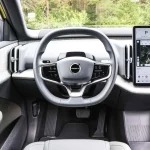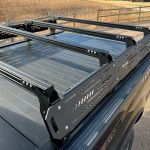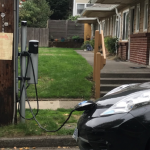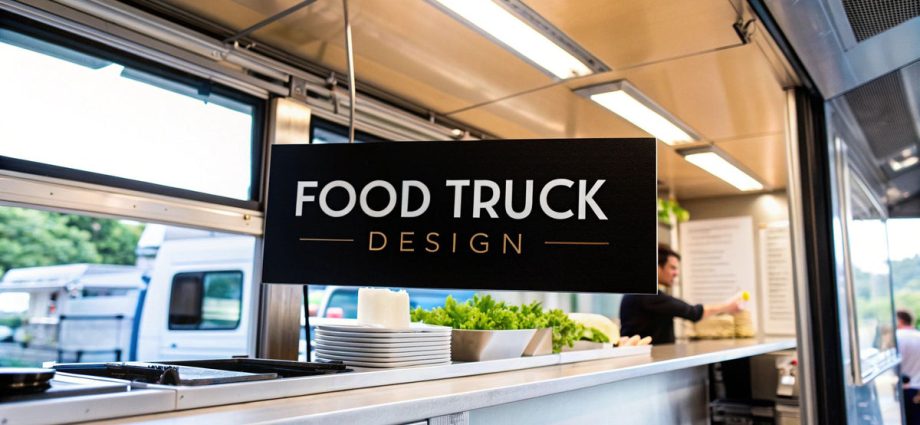The hum of a generator, the scent of fresh coffee or sizzling tacos, the friendly wave from a customer you know by name. This isn’t the sterile world of a brick-and-mortar shop. This is the vibrant, dynamic reality of a truck-based mobile business. Honestly, it’s a startup model that’s exploding in popularity, and for good reason.
Think of it as entrepreneurship on wheels. You’re not just selling a product or service; you’re delivering an experience directly to your community. You have the freedom to follow the demand, to test new markets without a crippling lease, and to build a brand that’s literally on the move. Let’s dive into why this path is so compelling for modern founders.
The Irresistible Allure of the Open Road
Why are so many people ditching the traditional storefront? Well, the math is pretty convincing. The overhead for a mobile truck business is, frankly, a fraction of a fixed location. No sky-high rent. No multi-year lease locking you in. Your initial investment goes primarily into your vehicle and equipment—the very heart of your operation.
And then there’s the flexibility. A bad location? You’re not stuck. You can simply drive to a better one next week. You can pivot your entire business model with relative ease. Want to try selling artisan donuts at farmer’s markets instead of office parks? Go for it. This agility is a superpower in today’s fast-changing economy.
Low Startup Costs & Reduced Risk
Here’s a quick comparison to illustrate the point:
| Expense Category | Brick-and-Mortar Startup | Truck-Based Mobile Startup |
| Location Lease/Security Deposit | $3,000 – $10,000+ | $0 (You park, you don’t lease) |
| Build-Out & Renovations | $10,000 – $50,000+ | $5,000 – $25,000 (for truck customization) |
| Monthly Overhead (Rent, Utilities) | $2,000 – $8,000+ | $200 – $800 (Insurance, parking, fuel) |
See the difference? The financial barrier to entry is just… lower. It allows you to start a business without betting your life savings.
Mapping Your Route: Popular Mobile Business Ideas
The possibilities are honestly almost endless. But some models have truly proven their worth on the road. Here are a few of the top contenders for a successful mobile business startup.
1. The Food Truck Phenomenon
This is the classic, the one everyone pictures. But it’s not just about hot dogs anymore. We’re talking gourmet grilled cheese, vegan bao buns, keto-friendly ice cream—you name it. The key here is a unique selling proposition. What can you offer that the restaurant down the street can’t? Maybe it’s speed, maybe it’s a specific cultural dish, or maybe it’s just an unforgettable brand personality.
2. Mobile Retail & Pop-Up Shops
Retail isn’t dead; it’s just gotten a new set of wheels. Imagine a boutique clothing truck that visits college campuses. Or a vintage record store on wheels that tours flea markets and music festivals. This model kills the boredom of traditional retail and creates a “findable” treasure hunt experience for customers.
3. Service-Based Ventures
This is a massive, and often overlooked, category. If you have a skill, there’s a good chance you can deliver it from a truck. We’re seeing a huge rise in:
- Mobile Grooming Salons: For pets, sure, but also for people. A barber truck at a corporate office? Genius.
- Mobile Fitness Studios: Yoga, spin, HIIT—bring the class to the park or a neighborhood.
- Specialty Repair Services: A tech repair truck for smartphones and laptops, or a small engine repair service for lawnmowers.
Gearing Up: Your Step-by-Step Launch Plan
Okay, you’re sold on the idea. But how do you actually get this thing rolling? Here’s a practical, no-nonsense roadmap.
Step 1: The Foundation (Paperwork & Permits)
This is the least glamorous part, but it’s the bedrock. Do not skip it. You’ll need to:
- Choose a business structure (LLC is popular for liability protection).
- Get an Employer Identification Number (EIN) from the IRS.
- Research and secure all necessary local and state permits. This is a maze, honestly. Health department permits for food, business licenses, and specific mobile vending permits are critical.
Step 2: Acquire Your Wheels
Your truck is your store. You can buy new, used, or even convert an existing vehicle. The key considerations are:
- Reliability: It has to start. Every day.
- Layout & Workflow: The interior design must be efficient for your specific operation.
- Power: Will you need a generator? A battery system? This is a big one.
Step 3: Craft Your Brand & Market Like Crazy
Your brand is how people find you and remember you. It’s more than a logo on the side of a truck—though a great wrap is absolutely essential. It’s your voice on social media. For a mobile business startup, your online presence is your storefront sign.
Use Instagram and Facebook to post your location schedule. Tease new menu items or services. Engage with your customers. They aren’t just buying a taco; they’re buying into your story.
The Bumps in the Road: Challenges to Anticipate
It’s not all smooth driving and sunny days. This life comes with its own unique set of challenges. The weather can shut you down. Mechanical issues can be a nightmare. And the competition for prime parking spots at popular events can be, well, fierce.
You have to be a jack-of-all-trades: part chef (or stylist, or technician), part marketer, part accountant, and part mechanic. It’s a grind. But for the right person, it’s an incredibly rewarding one.
The Final Destination
Starting a truck-based business is a testament to a new kind of entrepreneurial spirit—one that values freedom, agility, and direct connection over tradition. It’s about building something real, something that serves a community, one stop at a time.
The road is open. The question isn’t really if you have a good idea, but whether you’re ready to turn the key.










